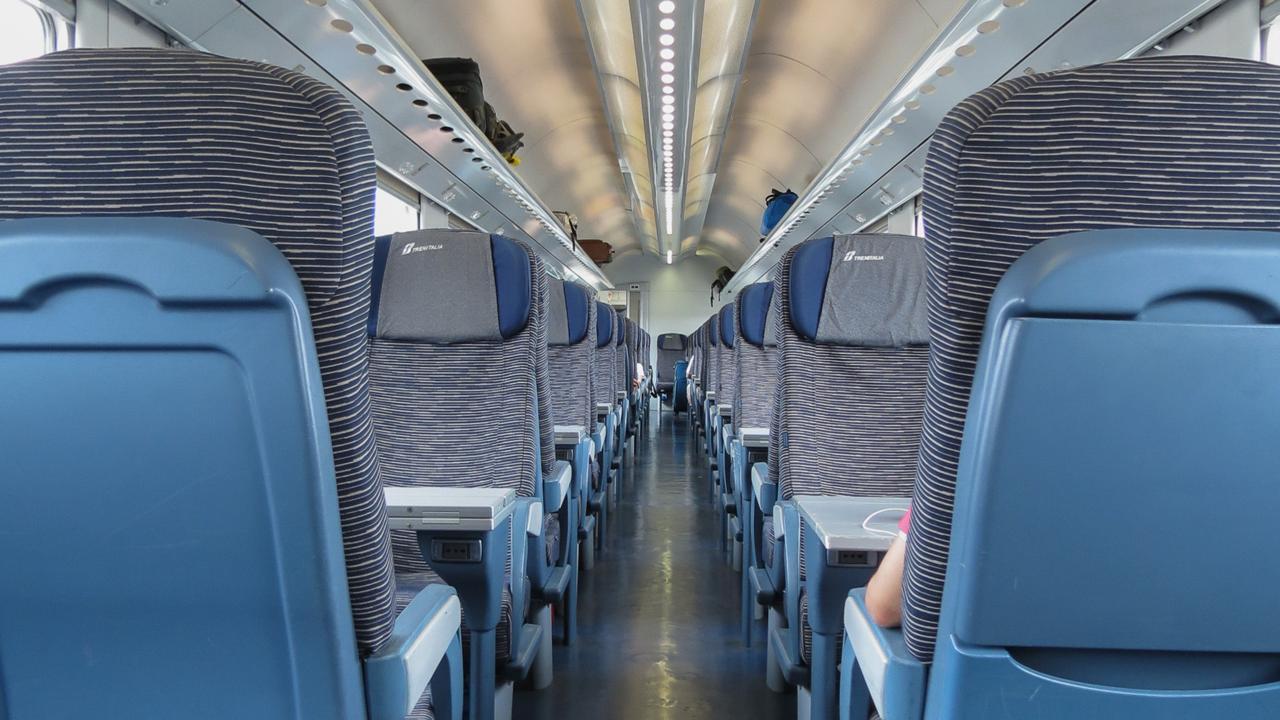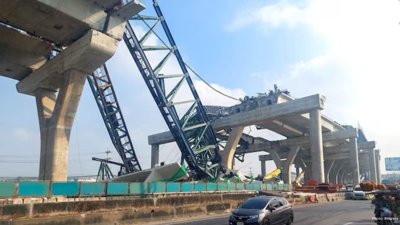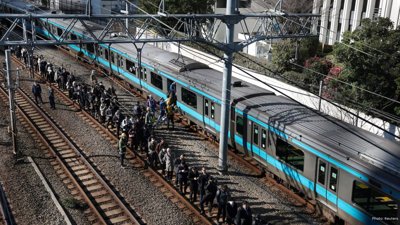
Post by : Amit
A Strategic Leap Into Smart Rail Mobility
The landscape of passenger train operations in India, the Ministry of Railways has floated a ₹3,200 crore tender to source critical smart coach components for the next generation of intelligent rail coaches. This massive procurement program is part of the Indian Railways’ long-term vision to integrate real-time diagnostics, predictive maintenance, and passenger-centric technologies into its expanding network—transforming legacy train infrastructure into a smart, responsive ecosystem.
The tender, released this week, encompasses a broad array of hardware and embedded systems, including sensors, onboard condition monitoring units (OCMU), fault detection tools, surveillance systems, fire and smoke detection modules, and real-time passenger information interfaces. These technologies, once integrated, will convert standard coaches into ‘smart coaches’—fully capable of collecting and relaying data to centralized control centers for analytics, maintenance, and safety alerts.
According to officials at the Rail Coach Factory (RCF) in Kapurthala and Integral Coach Factory (ICF) in Chennai, the move is designed to gradually replace conventional monitoring practices with automated diagnostics powered by Internet of Things (IoT) systems and artificial intelligence.
Understanding What "Smart Coach" Means
So what exactly defines a smart coach? In essence, a smart coach is embedded with intelligent systems that can track various operational, safety, and performance metrics. These include real-time wheel, axle, and brake monitoring; automated door controls; bio-vacuum toilet diagnostics; CCTVs with onboard storage and real-time relay; and centralized data collection for predictive maintenance.
Some versions also include GPS-enabled passenger information systems, coach occupancy tracking, seat sensors for ticketless travel detection, and communication modules for direct connectivity with control centers. Fire, smoke, and derailment detection modules are integrated to boost passenger safety.
These components are part of a growing ambition within Indian Railways to mimic the intelligence and interconnectivity found in metro and high-speed rail systems abroad, such as those in Japan, France, and China. Smart coaches are envisioned as a key component of future semi-high-speed corridors like Vande Bharat Express, as well as for regular express and mail services.
The Tender: Scope, Value, and Suppliers
The ₹3,200 crore tender has been floated through the Research Designs and Standards Organisation (RDSO) and will be processed under the Ministry’s procurement wing. As per the tender documents, the supply contract is expected to span over 36 months, with priority placed on domestic manufacturers under the Make in India and Atmanirbhar Bharat initiatives. Nearly 60% of the components will be procured from Indian companies or joint ventures with a minimum of 50% domestic value addition.
Global and Indian firms already working in this domain—including Bharat Electronics Ltd (BEL), RailTel, HBL Power Systems, Siemens India, Hitachi Rail STS, and L&T Technology Services—are anticipated to compete for portions of the contract. Startups and MSMEs with expertise in IoT hardware, embedded systems, and railway software are also being encouraged to participate, with special incentives for localization and innovation.
Notably, the components in the tender are modular by design, allowing retrofitting of existing ICF coaches and seamless integration into new-generation Linke Hofmann Busch (LHB) coaches, which already support more advanced wiring and digital systems.
Real-Time Monitoring: From Reactive to Predictive
The backbone of the smart coach vision lies in the transition from reactive to predictive maintenance. Currently, much of India’s coach maintenance is schedule-based, where checks and repairs are carried out at predetermined intervals. This method, while reliable to an extent, lacks precision and can miss early-stage faults.
Smart components like vibration sensors, temperature monitors, brake wear detectors, and bearing heat sensors will continuously transmit data on critical performance parameters. For example, an OCMU installed on a wheelset can detect minute vibrations indicative of a flat wheel, which, if left unattended, could lead to dangerous derailments. With smart diagnostics, alerts can be raised before failures occur, reducing accidents, downtime, and maintenance costs.
These systems will also be connected to regional control centers, such as those in Delhi, Secunderabad, and Kolkata, which are already being expanded under Indian Railways’ Digital Asset Management initiative. This network will act as the analytical brain of the smart coach ecosystem, processing terabytes of data from thousands of sensors in real time.
Enhancing Passenger Experience and Safety
The tender is not only about engineering advancements—it’s also a move to improve passenger experience and safety. For travelers, smart coaches will offer a more secure and comfortable environment. CCTVs will deter thefts and assaults. Automated door-locking mechanisms will prevent accidents at stations. Intelligent lighting and HVAC systems will optimize cabin comfort based on occupancy and ambient conditions.
Moreover, passenger information displays and mobile app integration will provide real-time updates about train speed, next stations, and platform changes. This is especially vital for differently abled passengers, elderly travelers, or those unfamiliar with India’s vast rail system.
Another interesting inclusion in the tender is “Smart Bio-Toilet Monitoring Modules.” These units will not only signal when toilets are choked or full but also monitor hygiene metrics. Feedback mechanisms will allow passengers to report issues in real time, while predictive maintenance will schedule sanitation crews in advance of failures.
Alignment With India's Broader Railway Modernization Push
The smart coach tender is one of several initiatives being undertaken by Indian Railways as part of a massive modernization program. This includes the roll-out of the indigenous Kavach anti-collision system, retrofitting of 30,000 wagons with RFID tracking, station redevelopment under the Amrit Bharat and RAIL MADAD programs, and the ambitious plan to achieve 100% electrification by 2030.
In tandem, the Vande Bharat trains—India’s flagship semi-high-speed trains—are already rolling off the line with smart coach capabilities embedded. However, what’s notable about this new tender is its sheer scale and scope—it targets the wider rolling stock population, not just premium trains.
By pushing smart coach technology into everyday express and mail trains, the Railways is signaling that digital transformation will not remain a premium feature but will become a standard operating protocol across the system.
Boost for Domestic Tech Ecosystem
The ₹3,200 crore tender is also expected to act as a demand signal for India's embedded hardware and industrial IoT ecosystem. Companies that have been developing railway-grade sensors, edge-AI modules, and connectivity solutions will now find a significant, stable market within India itself.
Several Tier-2 and Tier-3 vendors, especially those from electronics manufacturing hubs in Pune, Bengaluru, Hyderabad, and Noida, are eyeing the tender as a game-changing opportunity. Government-backed incubation centers like C-DAC, SAMEER, and IIT Madras Research Park are already coordinating with industry players to fast-track innovations suitable for the railway environment.
This could also open the door for collaborations with global technology providers, particularly from Japan, France, and South Korea, whose metro and inter-city rail systems are already using AI-embedded coaches. Technology transfer agreements, licensing deals, and JV partnerships may form in the coming months, further accelerating domestic capabilities.
Challenges and Considerations
Despite the enthusiasm, the transition won’t be without challenges. Integrating hundreds of electronic components into legacy coaches that were never designed for digital systems will require rewiring, space optimization, and compliance with safety norms.
Ensuring data security is another concern. With thousands of coaches transmitting real-time data, Indian Railways must implement robust cybersecurity protocols to prevent tampering, especially as trains increasingly move toward autonomous operations.
Standardization is equally crucial. The current rail ecosystem comprises a wide variety of coach models, each with different compatibility and voltage configurations. Ensuring interoperability of smart components will be vital for seamless roll-out across different zones and regions.
There’s also the question of training. Thousands of railway staff and contractors will need to be trained in installing, maintaining, and operating these new systems—something Indian Railways has already begun addressing through its digital skilling programs and training schools.
A System-Wide Shift Underway
The ₹3,200 crore tender for smart coach components marks a defining moment in Indian Railways' evolution. It represents not just an infrastructure upgrade, but a philosophical shift—toward proactive safety, predictive analytics, and passenger-centric design.
As the world watches India’s high-speed rail ambitions with interest, it is this deep-layered transformation of its conventional network—coach by coach, sensor by sensor—that may prove even more revolutionary in the long run. By embracing smart coach technology on a national scale, Indian Railways is not merely catching up to global standards—it is setting its own.
And with this tender, the wheels of change are now firmly in motion.
India Railways, Ministry of Railways










Advances in Aerospace Technology and Commercial Aviation Recovery
Insights into breakthrough aerospace technologies and commercial aviation’s recovery amid 2025 chall

Defense Modernization and Strategic Spending Trends
Explore key trends in global defense modernization and strategic military spending shaping 2025 secu

Tens of Thousands Protest in Serbia on Anniversary of Deadly Roof Collapse
Tens of thousands in Novi Sad mark a year since a deadly station roof collapse that killed 16, prote

Canada PM Carney Apologizes to Trump Over Controversial Reagan Anti-Tariff Ad
Canadian PM Mark Carney apologized to President Trump over an Ontario anti-tariff ad quoting Reagan,

The ad that stirred a hornets nest, and made Canadian PM Carney say sorry to Trump
Canadian PM Mark Carney apologizes to US President Trump after a tariff-related ad causes diplomatic

Bengaluru-Mumbai Superfast Train Approved After 30-Year Wait
Railways approves new superfast train connecting Bengaluru and Mumbai, ending a 30-year demand, easi